New reports of drink spiking raise safety concerns in St. John's bars
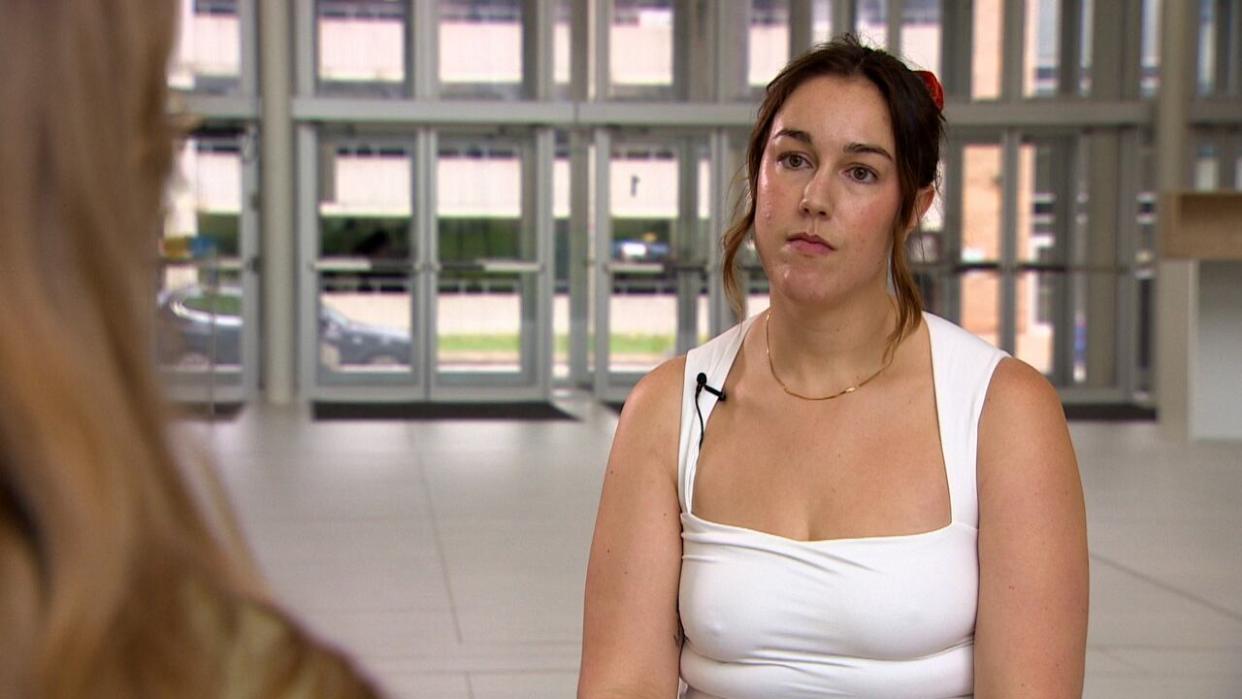
WARNING: This article contains references to assault and sexual assault.
One night three years ago, Melanie Lapierre went to George Street in downtown St. John's looking for a fun night with her friends.
Instead, she wound up on a nightclub's bathroom floor for three hours.
Lapierre, then 24, believes someone slipped drugs into her drink.
"There's so many pieces that I don't remember," Lapierre said in an interview. "And I can only attest that to not knowing what was in my drink, because I only had three drinks at that point."
After two glasses of wine and a single shot, Lapierre lost her memory of what happened that night.
She also doesn't know who may have attacked her, or how they did it.
What happened to Lapierre is an all-too-common experience for partygoers in St. John's. While downtown businesses, police and others have launched safety campaigns, the problem persists. The Royal Newfoundland Constabulary told CBC News it is dealing with new reports filed in recent weeks of suspected drink spiking in metro St. John's.
A night forgotten
Lapierre remains affected by the incident and will not go back to that particular nightclub because of the unsettling feelings it would bring her.
She said that she doesn't remember walking into the bathroom at the nightclub. She also has no memory of leaving.
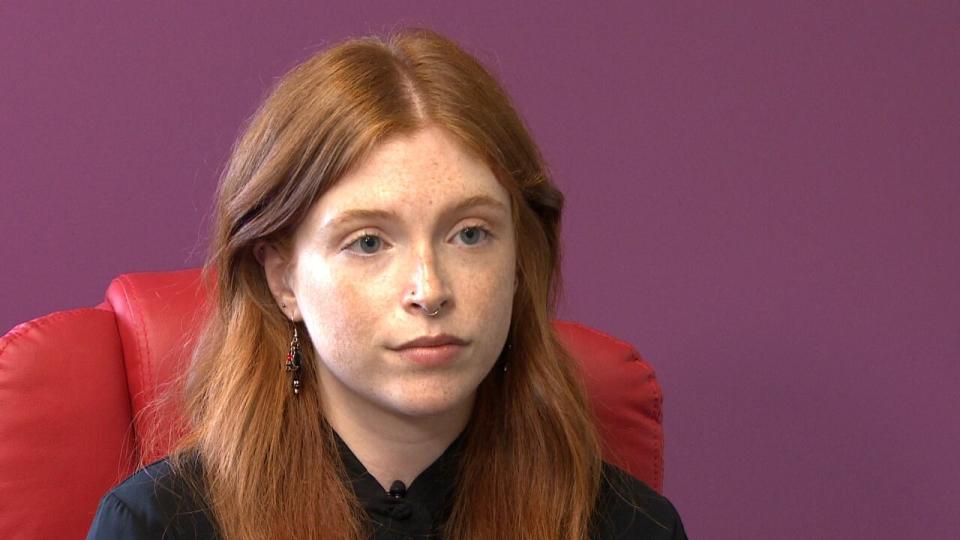
A group of women found her in the bathroom, she said, and they helped her contact her friends. Luckily for Lapierre, her friends were able to contact her father, who took Melanie home.
She said no one knew what to do in that situation, and considering the long wait times in emergency rooms, she didn't seek medical attention.
"I don't think it's a very well known…thing to know where to go [or] what happens when you are drugged downtown," said Lapierre.
She said that she continues to hear stories from friends of similar situations in downtown St. John's.
"It seems like a very universal experience, regardless of your age, your gender, no matter who you're with. It can literally happen to anybody," said Lapierre. "If we don't talk about it, nothing will ever happen."
She wishes that there had been more support in place at the bar to address the situation.
Beyond the victim
Olivia Lynch, the executive director of Violence Prevention Avalon East, said that the onus for preventing drink spiking should not be on the victim.
"I think it's really important this year to start recognizing the cultural aspect as well, and more so taking the blame away from those who have had their drinks spiked and looking at the bigger infrastructural issues," said Lynch.
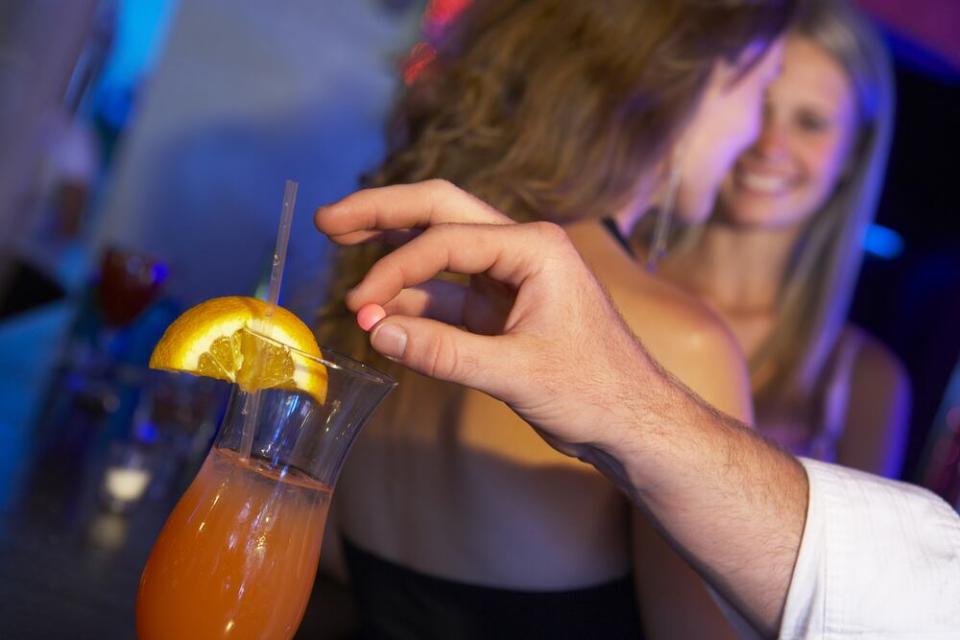
Lynch said security at bars and social venues be equipped to recognize the signs of drink spiking, and should provide covers on drinks as well as drug testing kits.
WATCH | A woman recalls being overwhelmed about what to do after suspecting her drink had been spiked:
She also said there needs to be change in how drink spiking is understood.
Lynch said everybody is vulnerable to drink spiking, not just women, and that being drugged in itself is an assault even if a sexual assault doesn't take place.
Christopher Smith, a researcher at Memorial University's school of social work, has been researching spiked drink testing kits.
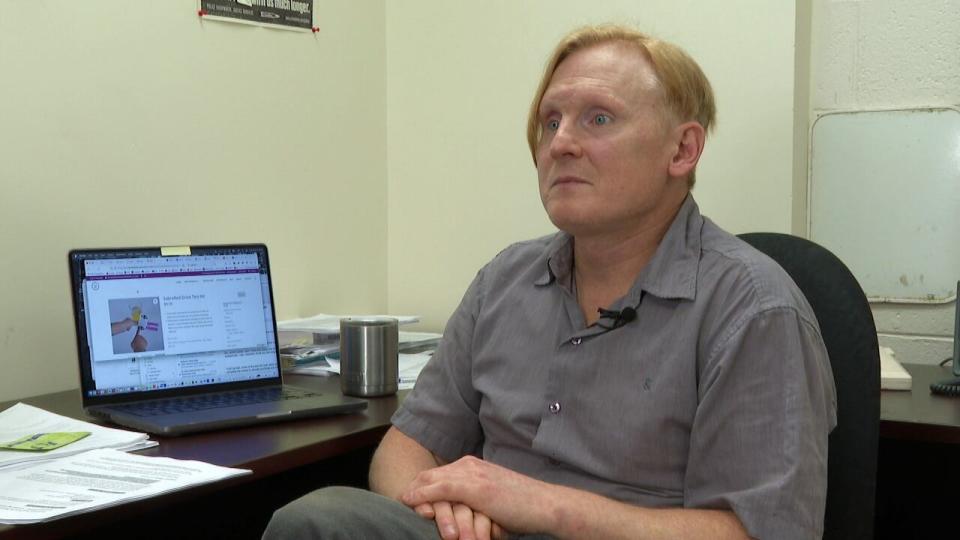
From his research, said there are misconceptions that need to be cleared.
Drugs used to spike drinks have been called "date-rape drugs," but Smith said a more appropriate term is "drug-facilitated sexual assault," or DFSA. He said it can happen in any setting, not just on dates.
He also said "roofies," or rohypnol, are not commonly used for DFSA. He said that other illicit drugs — like ketamine, GHB or benzodiazepines — are more common.
"Any of those in combination with alcohol will produce, you know, what is referred to often in the literature as chemical submission," said Smith. "You know, knock people out, essentially."
He said it's important to determine which test kit is the most effective at detecting drugs used in DFSA.
Some drink test kits are currently available online, including Test My Drink and DrinkSafe, that test for Ketamine and GHB. These tests include strips with dots where someone can place a small drop of their drink. The dot will change a certain color if a drug is detected.
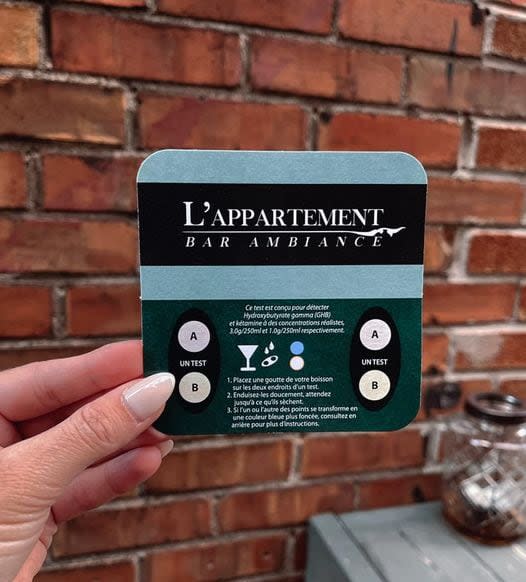
After doing a review of all the research on DFSA test kits, Smith will conduct interviews with women in St. John's nightlife industry and other stakeholders. The final phase of the research will involve field testing the test kit, by giving a large number of test kits to nightclub patrons.
"To have a test kit like this on one person, you know, when you're going out to the bar, is a means of potentially mitigating or eliminating or reducing the harm that could come from having a drink spiked," said Smith.
Smith hopes to generate a series of recommendations for the permanent establishment of an NL-based DFSA test kit program.
What to do when a drink is spiked
James Cadigan, media relations officer with the RNC, said it's important that if someone suspects their drink was spiked to report it to the police.
Cadigan also warned drink spiking can take place in any social setting, not just on George Street.
Lynch also recommends seeking medical attention, "just to make sure that whatever you have been slipped doesn't interfere with any other medications that you take or have any adverse effects on your regular day-to-day life."
Additionally, victims of drug-facilitated sexual assault, or any other type of violence, can contact organizations such as Violence Prevention Avalon East, who will work with the victim to find appropriate supports.
As for Melanie Lapierre, a night out now means travelling with a trusted group of friends, and organizing a safe ride home.
She also thinks it's important to memorize a friend's phone number, so that it's easier for someone else to call them in an emergency.
"Just try to keep your eyes on your drinks, watch the bartenders pour them, don't lay them down," said Lapierre.
"It can happen to anybody."
For anyone who has been sexually assaulted, there is support available through crisis lines and local support services via the Ending Violence Association of Canada database. If you're in immediate danger or fear for your safety or that of others around you, please call 911.
Download our free CBC News app to sign up for push alerts for CBC Newfoundland and Labrador. Click here to visit our landing page.


